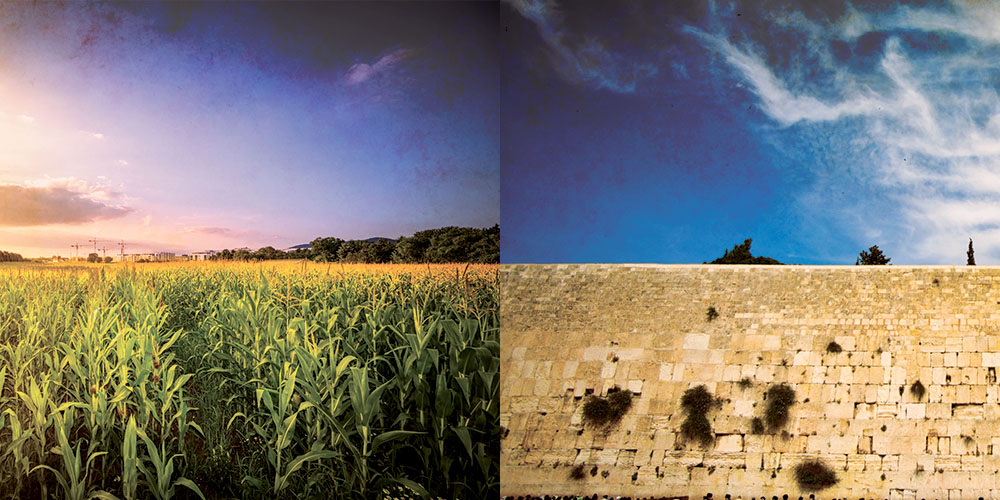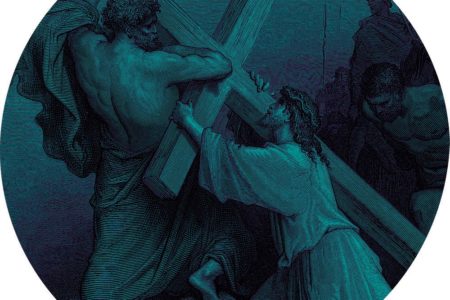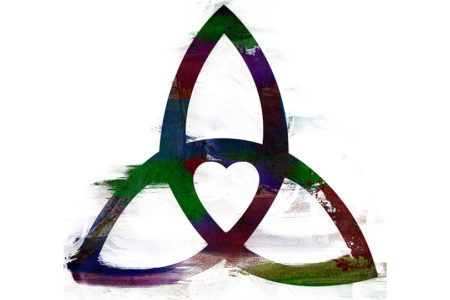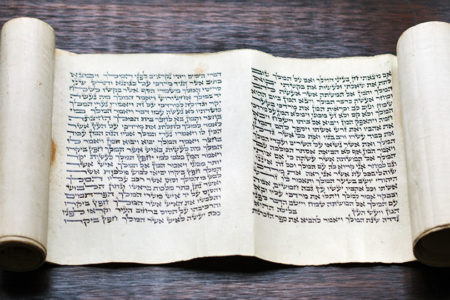From Cornfields to Kotel
A Gentile Christian’s Journey to Zionism
I am not a Jew. I feel I should make that clear from the beginning. I don’t keep kosher. I don’t like gefilte fish. And the first time someone called me a “mensch,” I thought he was insulting me. No, I will never be mistaken for a Jewish man.
Surrounded by cornfields and Amish buggies, with a lone stoplight at its main intersection, the rural Midwestern town I grew up in was not exactly a melting pot of cultures. It was a place where the kids knew about pickup trucks and the price of wheat, how to dress a deer and drive a manual transmission. We could point out on a map where our grandfathers fought in the war; but ask us to find Israel and you would be met with blank stares.
Despite what seemed like vast differences between my Jewish peers and me growing up, however, we weren’t all that different. I, too, believed in the Ten Commandments and thrilled at the Bible’s accounts of great men and women like King David, Queen Esther, and Jonah. Sure, my Sunday school was held at the Baptist church, not the synagogue; but there, too, they taught about the God of Israel and the ancient Hebrews who would serve as my role models and examples during my formative years.
In fact, it was while sitting in the wooden pews of that little church that the early seeds of Zionism were planted in my heart. Throughout the years, the pastors would often speak about God’s special relationship with, and love for, the Jewish people. I heard countless sermons celebrating the miracle that is the modern State of Israel—the place where theology, politics, and tomorrow’s headlines converge. I was taught—and have subsequently come to believe for myself—the literalness and validity of God’s great declaration to Abraham: “I will bless those who bless you, and I will curse him who curses you; and in you all the families of the earth shall be blessed” (Gen. 12:3).
In 2012, as a 21-year-old searching for my life’s work, I found myself on a plane bound for Tel Aviv. I was part of an energetic team of young evangelicals in a program called ORIGINS, an acronym for “Our Resolve Is Giving Israel Never-ending Support,” a ministry of The Friends of Israel.
We spent two weeks at a hospital in Rehovot where we worked alongside Arab and Jewish Israelis. We washed dishes, scrubbed toilets, did landscaping, and had a blast doing it. One of our primary goals was to give legs to our convictions about God’s love for the Jewish people and to demonstrate to them that, despite centuries of persecution at the hands of organized Christendom, there are, indeed, Christians who love and support Israel and the Jewish people unconditionally.
I was moved by the genuine warmth the Israelis showed us. They told me about their families; their hopes that their children and grandchildren would one day live in harmony with their Arab neighbors in the Middle East; and, of course, their opinions about current events and politics.
Late one evening, our team visited the Kotel—the Hebrew name for the Western Wall—that limestone monument to the arduously won dream of Zion. After looking at it for some time, I finally placed a kippah (skullcap) on my head for the first time ever and began making my way to the Wall. I raised my hand to the ancient stone, still warm from the rays of the Mediterranean sun, and began to pray. I prayed for the protection of the Jewish people. I prayed for the peace of Jerusalem.
As I returned to the outside courtyard overlooking the Kotel, I looked back to where I had just been, taking it all in—the sights, the sounds, and the smells of a summer night in Jerusalem. This was it. This scene of hundreds of Jewish people from all over the Diaspora—some with beards, some without beards; some whose skin was golden brown, others whose skin was European white like mine; young men, tall and lean; and others whose backs were hunched, their white heads bowed in reverent prayer. This was it. This was the reality of God’s promise to His Covenant People: “I will gather you from the peoples, assemble you from the countries where you have been scattered, and I will give you the land of Israel” (Ezek. 11:17).
As our plane made its ascent off the tarmac at Ben Gurion International Airport, I looked down at the Mediterranean, feeling that my heart had bonded to the nation and its people in a mysterious way. I had arrived a tourist and left a Zionist.
I have been to Israel once since that initial trip. And though I hope to return again one day, I feel that the greatest work I can do as a Christian and a Zionist is to be a voice at home. Jewish students at American universities are being targeted by anti-Semitic bigots who hide behind the politically correct banner of anti-Zionism. The Boycott, Divestment and Sanctions (BDS) movement seeks to beguile Christian churches into trying to cripple economically the God-ordained heirs of Eretz Yisrael. And a new generation is arising that sees the Holocaust merely as a dim event of the past. Its understanding of the truths of that atrocity is muddled by historical revisionism and moral relativism.
This is the world the Zionist dream faces. These are the cultural battles that must be won. But let it be known that Israel and the Jewish people are not alone in these trials. I am merely one of tens of thousands of evangelical Christians who stand in unfeigned solidarity with the Jewish state and the Jewish people and who daily take an active role in combating such attacks.
I am a Christian. I am an American. And, as unlikely as it is, from cornfields to Kotel, I am a Zionist. And I stand with Israel.








